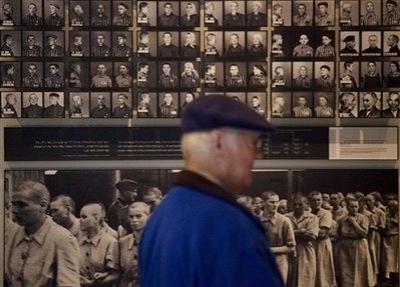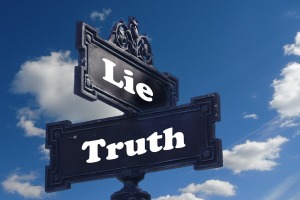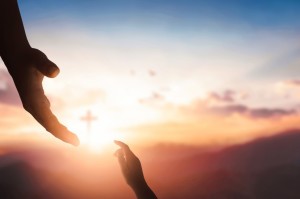The darkness of the Holocaust

Growing up, my grandfather told my siblings and me many stories about the Holocaust. I remember one of them especially vividly.
When my grandfather’s family was fleeing Nazi Germany, their car ran out of gas with the Nazis no more than a mile or two behind them. The family had no choice but to escape on foot. My grandfather’s mother went one way while his father went another, hoping to increase the chances that at least part of the family would survive.
Miraculously, my grandfather’s immediate family survived. His extended family, however, was virtually wiped out.
This story and other Holocaust stories were a regular part of my childhood, and when I looked into my grandfather’s eyes as he recalled his experiences, the horror felt very real. Yet, I had the comfort of knowing that I lived in very different times. I grew up in America decades after the Holocaust, and felt blessed to live in a country that welcomed the Jewish people and afforded complete religious freedom to all.
We were sure that humanity had moved past anti-Semitism and on to a more enlightened, informed, and compassionate existence. My children, on the other hand, are witnessing the opposite. The world seems to be regressing. Old stereotypes, myths, and lies are being revived at an alarming rate. Anti-Semitic attacks grow exponentially every year.
Anti-Semitism Surges
The situation in Europe is particularly troubling. It seems hard to believe, but a huge spike in anti-Semitic attacks is occurring in the very part of the world where the Holocaust occurred.
One recent study showed a radical rise in anti-Semitic violence and stereotypes — and a fading memory of the Holocaust — among young people. The world is forgetting one of the greatest massacres ever committed against humankind and the lessons that came with it.
This disturbing trend is not isolated to one European country. In 2018, French authorities reported a shocking 74 percent rise in anti-Semitic incidents. The head of France’s National Bureau for Vigilance Against Anti-Semitism has stated publicly that he has no confidence that this threat is being properly addressed.
In Germany, authorities reported a 19 percent rise in anti-Semitic incidents last year. German Jews have even been cautioned about wearing the kippah, the traditional Jewish skullcap, in public.
Addressing the situation in Belgium, Joel Rubinfeld, president of the Belgian League Against Anti-Semitism, said, “Recently, we’ve had a string of incidents where officials, opinion shapers and artists are defending anti-Semitism. That is a quite worrisome development, which I think is only happening in Belgium on this level.” Anti-Semitism, he says, is in danger of becoming mainstream.
No wonder so many European Jews fear for their future.
What Aliyah Means
Amid these deeply troubling developments, I am so grateful that there is a powerful and positive difference between the world of my grandfather and the world today. Today, we have Israel, a strong and sovereign Jewish state with a government and an army whose purpose is to protect and defend us.
We can make decisions for ourselves as a nation. We welcome Jews from around the world, many of them fleeing anti-Semitism — as the Jews of Europe are — to come here and help us build and strengthen our nation.
And through The Fellowship, we help bring those Jews to Israel — and they bring their talents and their commitment to living freely and proudly as Jews. Each individual makes us stronger and helps secure the Jewish future in our biblical homeland.
I’m reminded of the stirring words recorded in the book of Jeremiah: “’For I know the plans I have for you,’ declares the Lord, ‘plans to prosper you and not to harm you, plans to give you hope and a future’” (29:11).
This is what aliyah means for Jews who live in countries where the hateful scourge of anti-Semitism is on the rise: hope and a future, in the land that God promised them. Through our support of aliyah, we — Christians and Jews standing firmly together — can provide that hope and future to those in need.
Yael Eckstein is the president of the International Fellowship of Christian and Jews. As President, Eckstein oversees all ministry programs and serves as the organization’s international spokesperson. She can be heard on The Fellowship’s daily radio program airing on 1,500 stations worldwide. Before her present duties, Yael served as global executive vice president, senior vice president, and director of program development and ministry outreach. Based in Jerusalem, Yael is a published writer, leading international advocate for persecuted religious minorities, and a respected social services professional. As President of The Fellowship, she also holds the rare distinction of being a woman leading one of America’s largest religious not-for-profit organizations. www.IFCJ.org




























